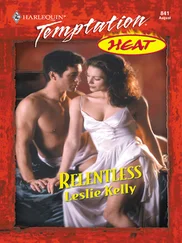These Laguna guys were fun all right. And they sure spent their money. She didn’t even know if there would be any money left when she asked them to help her out a little. Her roommates got tired of helping her out. They thought she was a secretary; they kept asking her what she did with all her money. She lied; she said she had to send it back home to Emma and the girls. She got dressed every day and left for work when they did. She changed her clothes in the ladies’ lounge. But it wasn’t working out. The man at the theater waited for her now; he watched her go down to the ladies’ lounge. She wasn’t surprised the day she heard the door open and close and she saw his brown shoes under the door of the toilet stall.
These Indians who fought in the war were full of stories about all the places they’d seen. San Diego, Oakland, Germany, the Philippines. The first few times she heard them talk, she believed everything. That was right after she got to town, and the girls took her out one weekend. She had walked around, staring up at the tall buildings, and all the big neon signs on Central Avenue. Every time she rode an elevator then, she thought of the old people at home, who shook their heads at the mention of elevators and tall buildings or juke boxes that could play a hundred different records. The old Utes said it was a lie; there were no such things. But she saw it every day, and for a long time when she saw these things, she felt embarrassed for the old people at home, who did not believe in these things. So she was careful not to make the same kind of mistake herself; and she believed all the stories the guys told. They had ribbons and medals they carried in their wallets; and if the U.S. Government decorated them, they must be okay.
She knew where to find them — which downtown bars they liked. She knew the veterans’ disability checks came out around the first of the month. She learned these things after she quit her job at the Kimo. She walked by the El Fidel, that day she quit, and she could hear them laughing and whooping it up inside, so she knew they were Indians. That day she went in only to ask for a loan, because the girls were getting behind with the rent. The guys told her to sit down. She asked for a Coke, and they told the bartender to put rum in it.
“How do you like that!” they said, laughing and patting each other on the back. “Nothing like this at Towac, huh?”
She sat with them all afternoon. It was dim in there, and cool because they had a table near the fan. In July the streets and sidewalks were too hot to touch. She looked for work, but every day when it started to get hot, she walked past the El Fidel to see who was there. They were happy to see her; they introduced her to their other buddies. Late in the afternoon, when she got up to leave, she would ask someone to help her out a little. By then they would be feeling pretty good. Someone always helped her out with five or maybe ten dollars. “We used to do this every night during the war,” one of them told her. “In San Diego one time, we bought the whole bar — all the soldiers and their girls — a round of drinks. That bartender shook his head; he told us, ‘I know it’s you Indians, without even looking. No one ever did that until the Indian soldiers came around.’”
They told her other stories too. Later on, when they started looking at her and sitting closer to her. The sergeant from Isleta still wore his khaki shirt with the stripes on the arm. As he reached over to pour her more beer, he rubbed his shaky arm against her side to feel the swell of her breast. She wasn’t surprised then either. She knew if they helped her out, they would get friendly with her too. He had already told her a story about blowing up a bunker full of Japs. The story ended with him pulling out his wallet to show her a little bronze star on a blue ribbon. “Another thing was the women. The white women in California. Boy! You never saw anything like it! They couldn’t get enough of us, huh?” “No!” all the others at the table would shout. “See,” the sergeant said, looking a little crookedly at her, “I’ll tell you about this one who was in love with me.” He nodded deliberately. “Yeah, she was. I told her I was already married back home, but she didn’t care. Boy, you shoulda seen her blond hair! She had it all curled. And she was built like this up front.” He held his brown hands out in front of his chest and grinned at the others. He turned back to her and breathed heavily into her ear. “Hey, let’s go someplace where I can tell you about it.”
But she didn’t want to go with him. “Tell me here,” she said, “I want to finish my drink.”
“Her name was Doreen. She only needed the money because her mother was a cripple. She wasn’t like the others. She went with me because she loved me. I could still have her if I went back to California.”
One of the guys at the table, an Apache, yelled at the Isleta sergeant. “She told that to all the guys. Doreen. That’s what she called herself. Sure she liked Indians! Because they were dumb guys like you!”
The Apache had been watching Helen Jean; he had been watching the Isleta rub up against her. The Isleta grabbed her arm. “Let’s go,” he said. She didn’t move. The Apache jumped up, ready to fight.
“She doesn’t want to go with you,” the Apache said.
The Isleta turned to her; his eyes were pinched with rage. “You bitch! You think you’re better than a white woman?” He slapped her across the face. Her teeth cut her tongue and the inside of her mouth. Tears ran down her face. The Apache grabbed him, and they started pushing at each other, in a staggering circle on the dance floor. The other guys were cheering for a fight. They forgot about her.
She knew all the stories, about white women in San Diego and Oakland and L.A. Always blond or redhead, nice girls with sick or crippled parents at home. It didn’t make any difference to her. They drank until they couldn’t walk without holding on to her. She asked them for money then, money to send back to Emma at Towac: for the little girls. Then they stumbled up the steps to the Hudson Hotel. If she took long enough in the toilet, they usually passed out on the bed.
Even in the wintertime, when the rooms at the Hudson were cold and the window by the bed had frost on it, they sweated beer; and they lay on her so heavily that it was difficult to breathe. Their mouths were wet and soured with beer, and when they pushed themselves down on her, they felt small and soft between her thighs. She stared at the stains on the ceiling, and waited until they gave up or fell asleep, and then she rolled out from under them.
She looked at these Laguna guys. They had been treated first class once, with their uniforms. As long as there had been a war and the white people were afraid of the Japs and Hitler. But these Indians got fooled when they thought it would last. She was tired of pretending with them, tired of making believe it had lasted. It was almost a year since she had left Towac. There was something about Gallup that made her think about it. She didn’t like the looks of the Indian women she saw in Gallup, dancing at Eddie’s club with the drunks that stumbled around the floor with them. Their hair was dirty and straight. They’d shaved off their eyebrows, but the hairs were growing back and they didn’t bother to pencil them any more. Their blouses had buttons missing and were fastened with safety pins. Their western pants were splitting out at the seams; there were stains around the crotch.
She reached into her purse for the little pink compact and looked in the mirror. Her hair was cut short and was tightly curled. It needed to be washed, but at least it wasn’t long or straight. She touched up her left eyebrow and put on lipstick. She didn’t like the looks of the country around here either. Rocks and sand, arroyos and no trees. After spending all her life at Towac, she didn’t need to be wasting her time there, in the middle of nowhere, some place worse than the reservation she had left. If she hung around any longer with these guys, that’s how she’d end up. Like the rest of the Indians. She smiled at the Mexican; he winked at her. He had the cash from his railroad pay check on the table in front of him. He’d help her out, give her some to send back to Towac. And this time she was really going to send some money to Emma, and she wasn’t going to waste any more time fooling around with Indian war heroes.
Читать дальше












